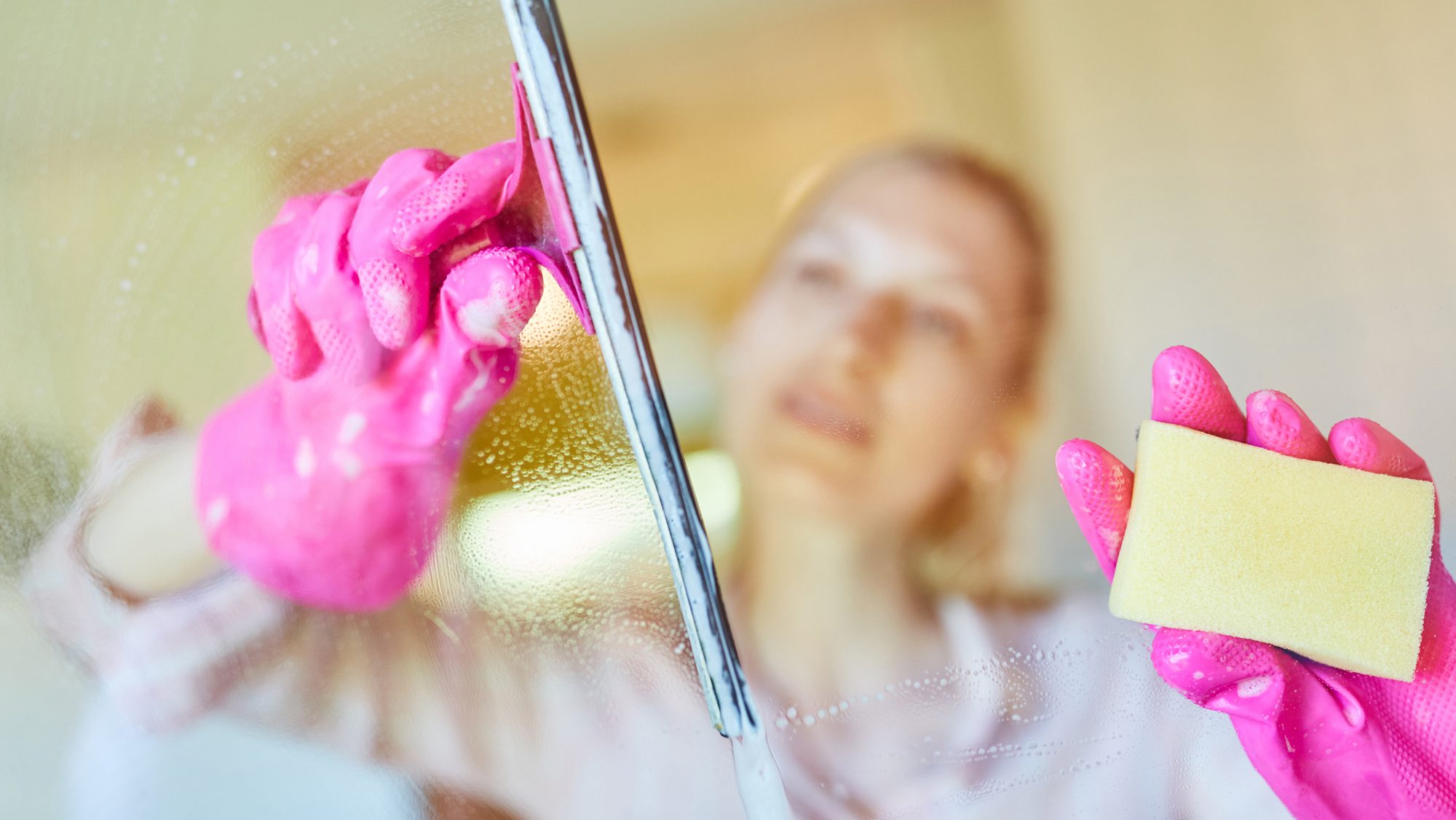
Robert Kneschke / EyeEm / Getty Images
Tired of looking at the world through windows filled with streaks and smudges? Sparkling-clean windows are an essential part of a whole-house deep clean and will enhance the appearance of your home. But getting windows to be fingerprint-free isn’t as easy as spraying a cleaning solution and wiping it down with paper towels.
Rusty Sanford, owner of Desert Heat Window Wash in Queen Creek, AZ, has been cleaning windows for over 10 years and says that making your home’s windows look brand-new may require abandoning some old habits. In your attempt to have streak-free windows, there’s a good chance you’re sabotaging yourself!
Here are some common mistakes to avoid when washing the windows in your home.
1. Washing on sunny days
You would think blue skies and endless sunshine would make for a perfect time to wash those dirty windows. Nope! All that built-up dirt and grime on your windows will only get worse when you clean glass in the sunshine. You’ll actually be creating more streaks because the cleaning liquid on a hot window will dry too quickly.
“It’s the temperature of the sun that makes it difficult,” says Sanford. “For example, when someone cleans their windows in the hot sun, they have an extremely high chance of the windows smearing and/or leaving a haze or film on the glass.”
The better solution? Clean on a cloudy day. Trust us on this.
2. Not removing dirt and dust first
Similar to the rinse cycle of a car wash, the first step to getting a truly clean window is to remove the buildup of dirt and dust.
“This means liberally applying your cleaning solution, typically with a trigger sprayer, and then scrubbing the glass using a window washer scrub pad—a removable, washable washer sleeve on a T-bar,” says Joshua Kennedy, founder of First Coast Home Pros in Jacksonville, FL.
If you don’t have a window washer scrub pad, he says, a clean microfiber towel soaked in solution to wet and scrub the glass can be used instead.
3. Using the wrong cleaner
If you want to achieve windows so clean you can see a reflection, it’s all about using the right kind of cleaner—and not overdoing it.
“For normal DIY window cleaning, we recommend one drop of mild dish soap—yes, just one drop—per gallon of water,” says Kennedy. “If the glass has hard water spots, mineral deposits from irrigation, or salt residue from ocean air, a solution of one part vinegar to one part water can be effective as well.”
4. Not using the squeegee
Armed with the right tools, you can have clean windows that rival the work of the pros.
“A good squeegee will make sure that all of the water has been pushed from the glass down to the corners and the sills, leaving a clean and dry window” says Tyler Hake, owner of Wash Our Windows Wisconsin in Fitchburg, WI.
Kennedy says that buffing glass with towels has the potential to leave your windows streaky, but a squeegee will provide you with the best result.
5. Washing windows with hard water
Ever had big, hard-to-remove water spots on your car paint after washing? That’s from hard water. To avoid similar hard-water streaks on your windows, the pros recommend using distilled water.
“I would never use hard water to clean a window. It has too much mineral buildup in it compared to distilled water and will undoubtedly leave water spots on the glass,” says Hake.Sanford says it’s OK to use hard water “as long as you are cleaning the windows correctly and not leaving behind smears or drips.”
Pros also recommend using cold water because warm water can quickly evaporate and leave ugly streaks behind.
6. Not cleaning windows regularly
Relying on random rain showers to wash your windows doesn’t cut it. Neither does using the garden hose to quickly wash the exterior of your house.
“If windows are not regularly cleaned, you have a high chance of weather damage or sun damage,” says Sanford.
He says weather damage is when the seal breaks or a small crack appears in the glass where air or water can get through in between the panes of glass. Sun damage can occur when the sun acts like a magnifying glass on the window and cooks the dirt or debris, leaving a burned effect on the glass.
Your location will determine how often you wash your windows, but experts say once every month or two should be appropriate.
The post 6 Common Window Washing Mistakes You May Not Know You’re Making appeared first on Real Estate News & Insights | realtor.com®.



No comments:
Post a Comment